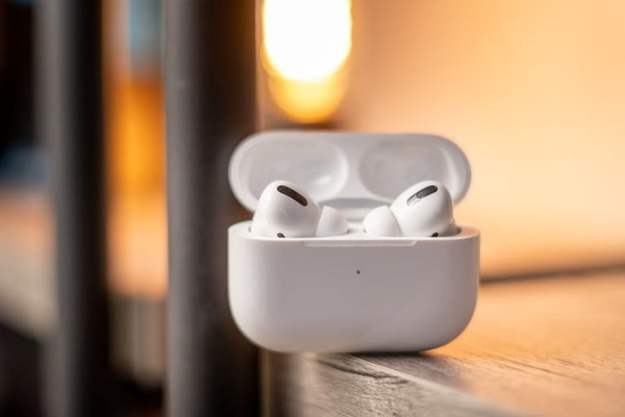Graphene, one of the most buzzed-about carbon compounds in material science, has the potential to transform industries, not the least of which is the world of sound. There’s only one problem: It’s really expensive. But audio researcher Peter Gaskell thinks he’s cracked the graphene conundrum.
Ora, a Montreal-based startup Gaskell co-founded with Sergii Tutashkonko — who holds a Ph.D. in material science — wants to be the first to market with graphene-based headphones. Gaskell, who holds a Ph.D. himself in audio recording, stopped by Digital Trends’ New York office to demo his new creation ahead of the company’s crowdfunding campaign on Kickstarter. They’re tentatively dubbed the GrapheneQ Headphones, and spoiler alert, they sound pretty fantastic.
Stronger, lighter, faster
Graphene is a highly conductive, flexible, and strong material made of latticed carbon atoms bonded in a hexagonal pattern (read our guide to Graphene). Scientists theorized its structure in the 1940s, but didn’t managed to isolate a layer until decades later, in 2004. Since then, it’s been used in new ways as an amazing conductor of electricity.
But it’s good for more than conducting electricity. Graphene has been proposed for use in applications like detecting cancer, filtering water, and heating your home because it’s a stiffer, lighter, and thinner material than comparable composites. Lucky for us, these are all characteristics which have an impact on sound. It’s all about physics: Traditional dynamic drivers, also called moving coil drivers, use an electrically charged voice coil to move a cone, which in turn creates sound waves. The heavier a speaker’s cone, the harder is to drive. With their incredible strength-to-weight ratio, graphene drivers cut down on the amount of power that’s required to move the coil back and forth, creating better efficiency, and in theory, better sound.
They feel reassuringly durable in the hand.
The drivers Ora has made for its new
It’s also the key to the GrapheneQ
The cans
The GrapheneQ
They offer Bluetooth wireless connection, with intuitive touchpad controls and a microphone for hands-free phone calls built in. Along with Bluetooth, you can plug in via a removable 3.5mm cable, and you can also connect to a PC or other device via USB-C. Battery life has not yet been disclosed, but thanks to graphene’s high efficiency it’s expected to be extremely long — possibly even disruptive.
The sound
Before we slipped on a pair, Gaskell had us listen to two black, nondescript bookshelf speakers set side-by-side — one equipped with Ora’s GrapheneQ driver, and one with an off-the-shelf alternative. The differences were subtle, but in genres like classic rock and classical, the GrapheneQ model’s reproduction of vocals and strings respectively exhibited more clarity and detail than its non-graphene counterpart.
In the case of the
Graphene in your pocket
While the GrapheneQ
“We’re applying our expertise in nanotechnology to push the fundamental limits of speaker technology.”
Ora is particularly bullish on the smartphone industry, where it thinks applying GrapheneQ tech could result in smaller, low-power speakers that sound better than those mounted in your current
“We’re applying our expertise in nanotechnology to push the fundamental limits of speaker technology,” Gaskell said. “From inception, [we’ve] taken an industry-driven approach to design, manufacturing, and materials development.”
To that end, Ora is taking pains to manage expectations with the GraphenQ
“We are confident as possible that we will not only achieve our vision of professional sound through nanotechnology, but that we will deliver [it] on time,” he said.
The GrapheneQ launches on Kickstarter June 20, with retail availability to follow in March 2018. The first several hundred backers can reserve a pair for $200, but Ora’s anticipating a suggested retail price between $500 and $600.
Editors' Recommendations
- Sony WH-1000XM6: the design and features we want Sony’s next headphones to deliver
- How we test headphones and earbuds
- The first wireless hi-res headphones with UWB will arrive in 2024








